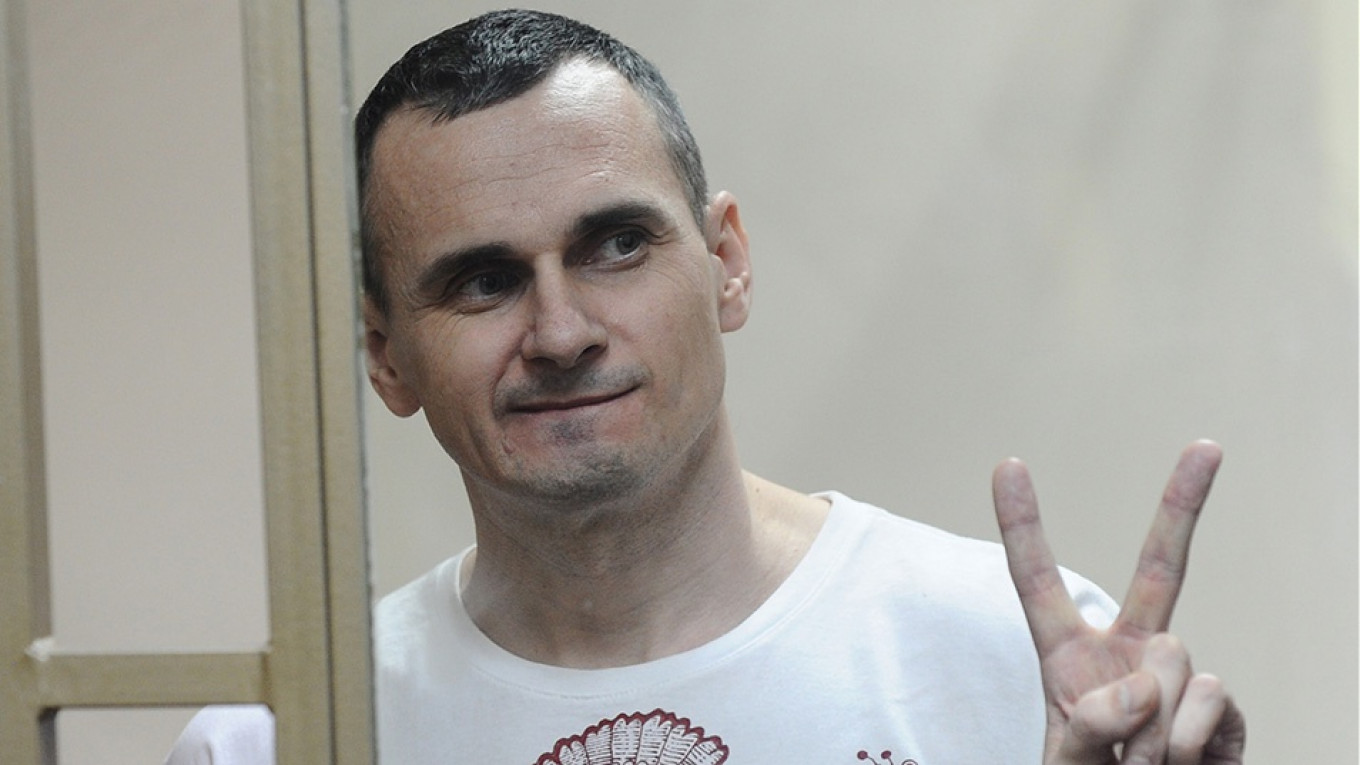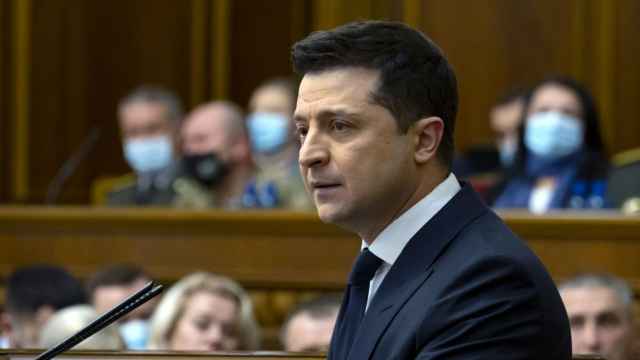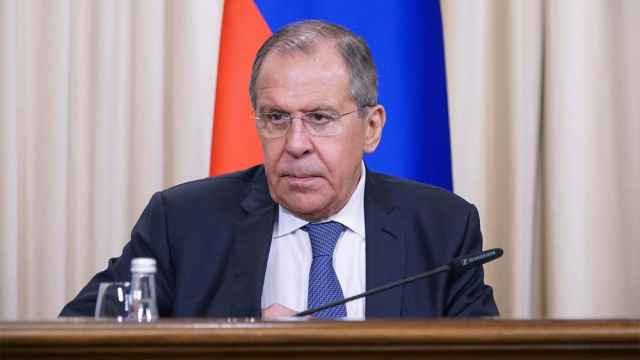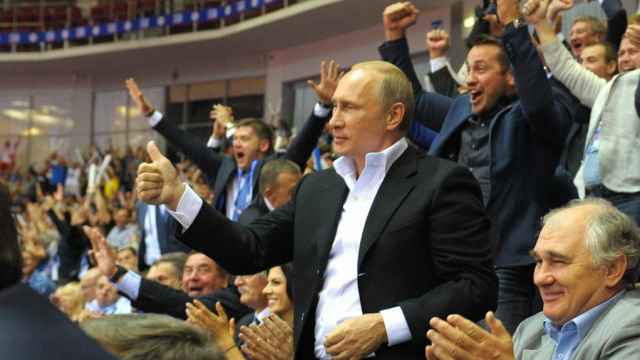Seventy-five days. Eleven weeks. Two and a half months. That’s how long Oleg Sentsov has been on a hunger strike.
In May, the Ukrainian filmmaker and writer imprisoned in Russia on charges of extremism declared the protest with the demand that 64 other Ukrainians he considers political prisoners be released. If his demand wasn’t met, he said, he would continue to the “bitter end.”
“He is not suicidal,” says his lawyer Dmitry Dinze. “He doesn’t think that his demands cannot be fulfilled. He simply wants the Ukrainian political prisoners to be traded for the Russians imprisoned in Ukraine. As a Russian citizen myself, this is also something I want my government to do.”
A native Crimean, Sentsov, 41, is currently in the third year of his 20-year sentencing in a strict penal colony above the Arctic Circle. Arrested alongside left-wing activist Alexander Kolchenko less than two months after Russia annexed Crimea in 2014, Sentsov was accused of setting fires to the unofficial offices of the ruling United Russia party and plotting to detonate a Lenin statue.
Sentsov and activists say there is no evidence behind the accusation. And when his trial began, Sentsov declined to even ask the judge for leniency. “The court of an occupying power by definition can’t be just,” he said. “Nothing personal, Your Honor.”
“This whole trial was designed to send a message,” said an Amnesty International spokesperson after the trial’s conclusion in 2015. “It played into Russia’s propaganda war against Ukraine and was redolent of Stalinist-era show trials of dissidents.”
Four years later, Sentsov announced his hunger strike with the expressed goal of stirring up an international outcry ahead of the World Cup, which ended earlier this month.
The protest recalled Nadezhda Savchenko, the Ukrainian pilot who was returned by Russia in 2016 after carrying out her own hunger strike. Unlike hers, though, Sentsov’s protest does not appear to have had the desired effect.
“If a prisoner trade had happened, it would have happened before the tournament, like when Pussy Riot and Greenpeace members were released prior to the 2014 Sochi Winter Olympics,” says Yulia Gorbunova, a Russia researcher for Human Rights Watch. “It would have been a gesture to the international community.”
The issue, human rights defenders say, is that Sentsov’s demands are too extensive — and that he lacks any leverage over President Vladimir Putin, the sole authority in Russia who can authorize a prisoner trade, and who is seemingly no longer interested in making such gestures.
“The Kremlin must believe that his death wouldn’t worsen Russia’s image,” says human rights activist Zoya Svetova. “We already have so many scandals on the international arena — meddling in the American elections, Novichok in Britain. So what if a Ukranian is starving?”
There are cases in Russia, however, when hunger strikes have worked. Just this past month, a 21-year-old Uzbek national held in a Moscow region prison was able to get his sentence halved by way of hunger strike.
And last summer, deputies in Serpukhov, a town in the Moscow region, successfully led a hunger strike against a landfill that was located too close in proximity to a school. After 56 days, their demands were met, and the landfill was shut down.
Yet despite his success, Nikolai Dizhur, one of the deputies who led the strike, would not recommend the measure to others. “It’s very rare that this action can achieve results,” he said. “Our government is built to ignore these protests.”
The form of protest is nonetheless common in Russia. Indeed, just this week, 86 miners in Siberia announced a hunger strike because their wages haven’t been paid since May.
“Without a doubt, this is an instrument of protest that is trending upward in Russia,” says Natalia Taubina, director of the Moscow-based human rights organization Public Verdict Foundation, noting that the country has a long tradition of such protests going back to the Soviet Union.
“This speaks to the fact that there are no other protest tools,” she continued. “Even street protests are hugely risky and dangerous here. If in other countries people have other methods, in Russia people have nothing else to turn to.”
With Sentsov, Taubina drew a parallel with Andrei Marchenko, the famous Soviet dissident who died following a hunger protest that saw a number of political prisoners released after his death. “At a minimum, we can say that hunger strikes in modern Russia are approaching dissident status,” she said.
“In most of the world, there are mechanisms like a functioning court system through which to find justice,” says Svetova, pointing to the fact that fewer than one percent of criminal defendants in Russia are cleared. “In Russia, this simply doesn’t exist.”
Dinze, Sentsov’s lawyer, says that when such protests are successful, it is usually when they have a very focused demand. One of his current clients, for instance, Vladimir Balukh, a Ukrainian citizen currently imprisoned in Crimea, recently used a hunger strike to improve the conditions of his cell.
Dizhur, a Yabloko Party deputy, likewise pointed to the narrow aim of their protest. He also noted that they had the public on their side because they were fighting for children, and that they diligently documented both the violations they were protesting against, and their own.
His protest, ultimately, is a symbolic stand against the absence of justice.
“Pro-Kremlin media would say that we were eating shashlik and drinking cognac,” says Dizhur. “To push back, we would go into a state hospital every day and have ourselves weighed to prove we weren’t.”
“It was absolutely a last-resort decision,” he continued. “We had protested, picketed, we had sued in court. We tried everything, and nothing worked. So we decided: Either the landfill is shut down or we die.”
But does this all mean that Sentsov’s strike is futile, that he is fated to die without a single prisoner traded simply because he is demanding too much?
His lawyer, for one, doesn’t think so.
“All he’s asking for is for Russia to continue the process that they already began with Savchenko,” Dinze said, referring to the Ukrainian pilot. “This is absolutely in Russia’s interests, and a logical request.”
And even if Sentsov is unable to see his demands fulfilled, others believe that his protest has its own intrinsic value, whether or not it effects change.
“By choosing to do this, he is saving at least some semblance of his humanity,” said Gorbunova of Human Rights Watch. “His protest, ultimately, is a symbolic stand against the absence of justice.”
A Message from The Moscow Times:
Dear readers,
We are facing unprecedented challenges. Russia's Prosecutor General's Office has designated The Moscow Times as an "undesirable" organization, criminalizing our work and putting our staff at risk of prosecution. This follows our earlier unjust labeling as a "foreign agent."
These actions are direct attempts to silence independent journalism in Russia. The authorities claim our work "discredits the decisions of the Russian leadership." We see things differently: we strive to provide accurate, unbiased reporting on Russia.
We, the journalists of The Moscow Times, refuse to be silenced. But to continue our work, we need your help.
Your support, no matter how small, makes a world of difference. If you can, please support us monthly starting from just $2. It's quick to set up, and every contribution makes a significant impact.
By supporting The Moscow Times, you're defending open, independent journalism in the face of repression. Thank you for standing with us.
Remind me later.







